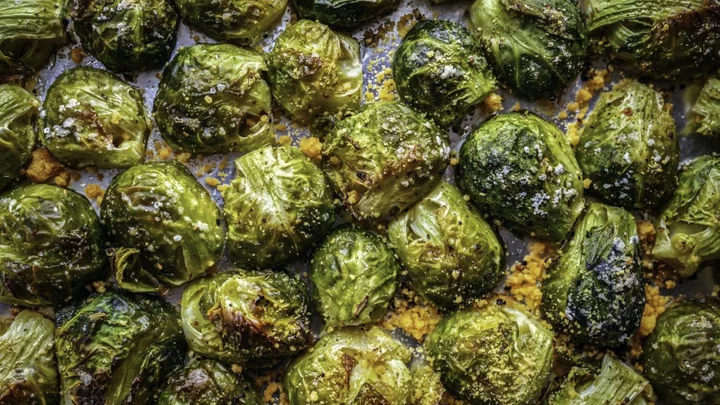
There is a scientific reason some people can't stand Brussels sprouts
Christmas is approaching, and that means so are the overcooked, bitter, totally unnecessarily mountains of Brussels sprouts that your family insists on serving. Every, damn, time. Well, that’s how some people might see it, anyway. The fact is, love them or hate them, Brussels sprouts are always going to be controversial – a little like that awkward uncle who rocks up every Christmas and starts a big family row. But it turns out that sprout-haters have actually got a very sound, scientific excuse for their picky eating on Christmas day – and it's all to do with genetics. Stacey Lockyer, nutrition scientist at the British Nutrition Foundation, told Huffpost: “Brussels sprouts are one of a group of vegetables known as cruciferous vegetables or Brassica which also includes broccoli, cabbage, cauliflower and kale. “Brassica contain high amounts of compounds called glucosinolates which, when metabolised in the body, give them their characteristic sharp or bitter taste.” An area covering 3,240 football pitches is dedicated to growing Brussels sprouts in the UK. If you were to line them up individually, they'd stretch from London to Sydney. Despite this, some people are just genetically predisposed to hate that bitter taste. Lockyer added: “Whether we like or dislike certain foods is determined by different factors (such as previous experiences with a food and number of exposures), but some studies have demonstrated that the perception of bitterness of cruciferous vegetables is linked to genetic differences in taste receptors on the tongue.” In fact, a 2011 study by Cornwall College found sprouts contain a chemical which only tastes bitter to people who have a variation of a certain gene. The research found that around 50 percent of the world’s population have a mutation on this gene. About half of us just don’t taste the bitterness usually associated with sprouts, and therefore actually like them. (Imagine!) Nonetheless, hope is not lost. A University of Warwick study found that as we get older, we’re more likely to like sprouts. Research fellow Lauren Chappell said in a blog post: "Sulphur is responsible for the bitter sprout taste. As we age, we lose tastebuds, which can make them more palatable—potentially why adults who hated sprouts as children now embrace them in seasonal dishes.” Which means, regrettably, that your grandparents were probably right all along. How to join the indy100's free WhatsApp channel Sign up to our free indy100 weekly newsletter Have your say in our news democracy. Click the upvote icon at the top of the page to help raise this article through the indy100 rankings.
2023-12-01 01:17

There's a reason why we've never found fire anywhere other than on Earth
Fire might seem like one of the most elemental things in the natural world, but it’s never been found anywhere other than Earth. It’s because the creation of fire relies on very specific circumstances. In fact, if fire was ever found on another planet, it would be a good indicator of the possible existence of life. Oxygen is key to fire, and while it’s particularly prevalent in the universe, Earth’s atmosphere features an abundance of the element in the right molecular form for it to form. Even then, the way the Earth’s atmosphere has changed over its lifespan is also crucial to conditions being fostered where fire can form [via IFLScience]. For millions of years, in fact, there wasn’t enough oxygen in the atmosphere to create fire. Before the Middle Ordovician period, when there was far less oxygen, there’s no evidence of fire whatsoever. Most of the fuel that fire needs is also directly related to life existing on the planet – think wood, oil and coal. Without life, there isn’t an awful lot of fuel going around, which just shows why the existence of fire on another planet would be a very promising sign when it comes to exploring the universe for life. Despite fire being much rarer in the universe than most might think, it was previously confirmed that humans in Europe may have mastered fire long before we previously thought. According to a study published in Scientific Reports, humans made the discovery around 245,000 years ago, up to 50,000 years earlier than scientists believed, Researchers studied samples from the Valdocarros II, a huge archaeological site found east of Madrid, Spain. Using chemical analysis, they found certain compounds that show things were burnt by fire in "organised" social events, rather than through accidents or wildfires. Sign up for our free Indy100 weekly newsletter How to join the indy100's free WhatsApp channel Have your say in our news democracy. Click the upvote icon at the top of the page to help raise this article through the indy100 rankings
2023-12-01 00:57
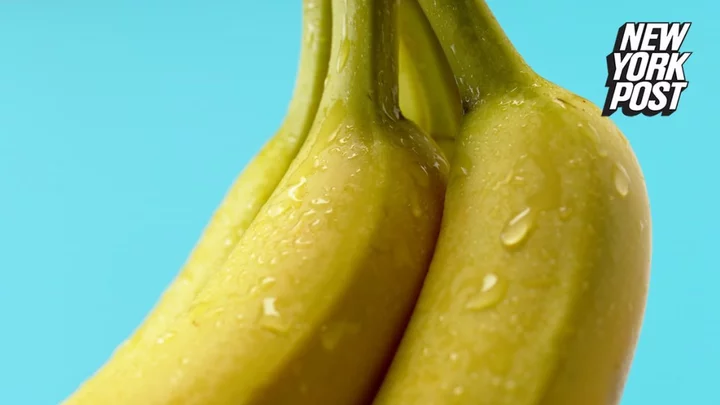
Using banana skins as an ingredient has unexpected benefits
A study last year found that every time you throw away a banana peel, you're missing out on a great snack. The study, published in ACS Food Science & Technology, found that if banana peels are blanched, dried, and ground into a flour, they can be turned into baked goods that taste just as good as wheat-based products. And it turns out it's actually really food for you. Consuming products made from banana peel means you consume minerals and cancer-fighting minerals. Sugar cookies that were enriched with banana peels not only tasted the same as peel-free sugar cookies, but contained much more fibre, magnesium, potassium, and antioxidant compounds. In 2021, a study on banana peel cake found the yellow skin of the fruit provided a natural food colour as well as a nutritional boost. Whilst a 2016 study found that substituting up to 10 per cent of wheat flower with banana peel flour can enrich baked bread with higher protein, carbohydrate, and fat contents. Not only is it a healthy food option, it also helps reduce food waste! And the same goes for other fruits too, such a mango skin, what was found to boost a cake's antioxidant properties and improve its flavour. Just make sure to add the right amount of banana peel to your bakes and makes. Adding too much banana peel flour did result in the study's cookies going somewhat brown and hard, possibly from all the extra fibre. 7.5 percent of banana peel flour seems to be the sweet spot, with the texture and taste hitting an appealing balance. So maybe reconsider next time you go to thrown a banana skin away. Sign up to our free Indy100 weekly newsletter Have your say in our news democracy. Click the upvote icon at the top of the page to help raise this article through the indy100 rankings. How to join the indy100's free WhatsApp channel
2023-12-01 00:55

Analysts predict more brands will flee X after Musk tirade
By Chavi Mehta and Jaspreet Singh (Reuters) -More advertisers are likely to flee Elon Musk's social-media company X after the
2023-12-01 00:54

Tesla to deliver Cybertrucks after Musk tempers expectations
(Corrects paragraph 8 to say Tesla's chief designer used a metal ball to demonstrate Cybertruck's glass, not Elon Musk with
2023-11-30 23:47

WhatsApp update adds ‘secret codes’ for chats
WhatsApp has added “secret codes” for chats, allowing them to be locked and hidden. The feature is intended to let people have a chat that will not even be visible within the list of conversations. Instead, they can only be found by typing that code into the search bar at the top of the app. The feature is intended as “another layer of privacy for protecting your most sensitive conversations”. It has been built for those people who might need to keep important conversations entirely hidden, even from people who have access to their phone – such as people in abusive relationships. WhatsApp described the feature as a way to protect chats and “make them harder to find if someone has access to your phone or you share a phone with someone else”. It follows a similar feature, Chat Lock, which was announced earlier this year. When chats are locked, they are taken out of the inbox and put in their own “Locked chats” section, which requires a password or biometric authentication like a fingerprint to open. “We think this feature will be great for people who have reason to share their phones from time to time with a family member or those moments where someone else is holding your phone at the exact moment an extra special chat arrives,” it said then. Chats can be locked by long tapping on a conversation in the list and choosing the lock option. They can be found again by slowly pulling down on the inbox, which will bring up the prompt to open it. Secret code, however, means that they will not appear in that list at all. Instead, users will have to put the code into the search bar. As such, people will not even be able to find those hidden chats even if they know they might exist. Users create the code by locking it and then choosing the code option, when they are prompted to “use a word or emoji, but make it memorable”. Typing that word or emoji into the search bar will then bring up the chat, but it will otherwise not show at all.
2023-11-30 22:21
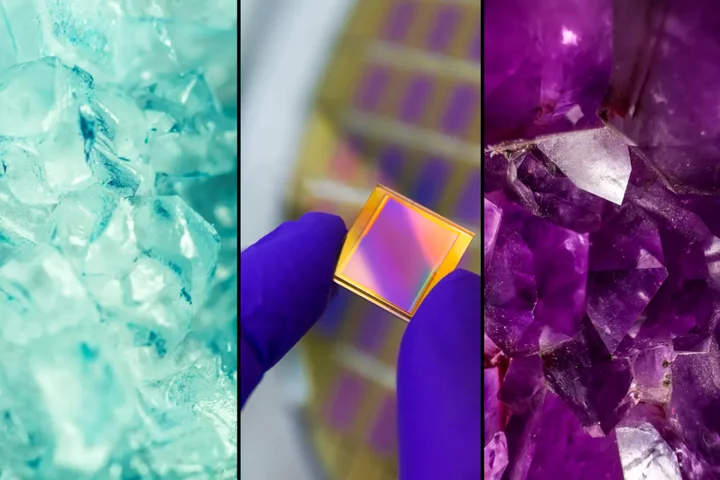
DeepMind’s AI discovers ‘800 years’ worth of knowledge’
Google’s leading AI division DeepMind claims to have unlocked “800 years’ worth of knowledge” after discovering 2.2 million new crystals. The materials found through the research could be used to transform industries, DeepMind said, while simultaneously opening up brand new avenues for making future discoveries. Of the 2.2 million crystals, roughly 380,000 of them are reportedly stable enough for developing next-generation technologies, ranging from better electric car batteries to superconductors for ultra-efficient computers. In order to discover the crystals, DeepMind developed a state-of-the-art neural network tool called GNoME (Graph Networks for Materials Exploration). DeepMind researchers Amil Merchant and Ekin Dogus Cubuk wrote in a blog post that using GNoME bypassed centuries of “painstaking experimentation” that would have been required to discover the new materials. “With GNoME, we’ve multiplied the number of technologically viable materials known to humanity,” the researchers wrote. “GNoME shows the potential of using AI to discover and develop new materials at scale... We hope that GNoME and other AI tools can help revolutionise materials discovery today and shape the future of the field.” External researchers tested DeepMind’s breakthrough by independently creating 736 of the new materials discovered by GNoME. “Among these candidates are materials that have the potential to develop future transformative technologies ranging from superconductors, powering supercomputers, and next-generation batteries to boost the efficiency of electric vehicles,” the blog post stated. The research was detailed in a study, titled ‘Scaling deep learning for materials discovery, published in the journal Nature. The researchers behind the new tool said it can “reach unprecedented levels of generalisation, improving the efficiency of materials discovery by an order of magnitude”. Others uninvolved in the research described GNoME as the “ChatGPT for chemistry”, referring to the hugely popular artificial intelligence chatbot released exactly one year ago. “Scientific discovery is the next frontier for AI,” said Carla Gomes, co-director of the Cornell University AI for Science Institute, who was not involved in the research. “That’s why I find this so exciting.” Read More 10 ways AI will change the world – from curing cancer to wiping out humanity Astronomers find unprecedented ‘disc’ around distant planet How AI is about to change our relationship with phones forever When and where to watch Tesla’s highly anticipated Cybertruck delivery event
2023-11-30 20:30

Pioneering drug designed to extend the lives of dogs just made a breakthrough
Our canine companions could soon be enjoying much longer lifespans, if a drug which claims it can extend dogs’ lives eventually gets approved. The drug, made by a tech firm in California, just cleared a vital hurdle to doing just that, after it got partial approval by regulators in the US. Loyal, a San Francisco-based company founded in 2020, has been researching how it can increase dogs’ lifespans – in particular larger breeds, which tend to die younger. Large and “giant” breeds tend to live to between eight and 12 years. Smaller dogs, such as Chihuahuas, can keep going to the ripe old age of 20. Loyal’s main product, the catchily-titled LOY-001, is designed not only to extend dogs’ lives but also maintain their quality of life. Now, it has passed the “reasonable expectation of effectiveness” test, set by regulators at the US’ Food and Drug Administration. Loyal’s chief executive, Celine Halioua, said: "Loyal was founded with the ambitious goal of developing the first drugs to extend healthy lifespan in dogs. "This milestone is the result of years of careful work by the team. We'll continue to work just as diligently to bring this and our other longevity programs through to FDA approval." Selective breeding of dogs has caused higher levels of hormones which help the animals grow faster. That is also believed to reduce their lifespan, the company said. Big dogs tend to have more of this hormone than their smaller counterparts. Animal rights activists are not yet convinced. Some experts fear it will only serve to extend animals’ suffering. Loyal, on the other hand, says the drug aims to treat doggy diseases which are associated with ageing through preventing them, rather than waiting for the animals to get sick before treating them. The company said that the drug could be available to US customers as early as 2026. So that’s plenty of time for walkies between now and then. How to join the indy100's free WhatsApp channel Sign up to our free indy100 weekly newsletter Have your say in our news democracy. Click the upvote icon at the top of the page to help raise this article through the indy100 rankings.
2023-11-30 19:50
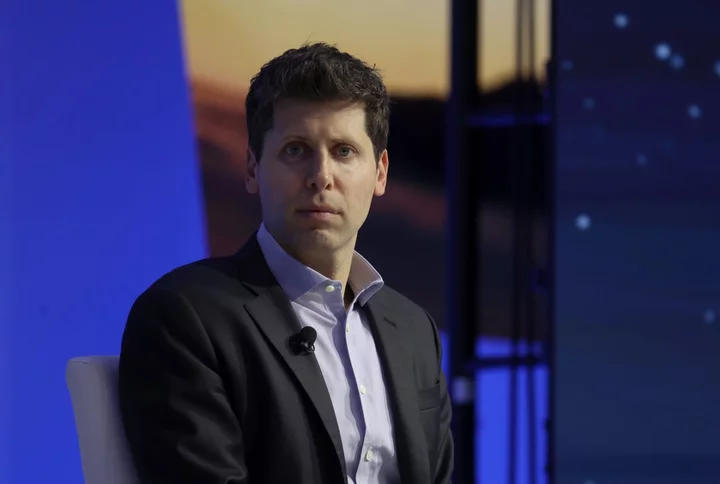
Microsoft gets seat on OpenAI board with Sam Altman back as chief executive
Microsoft has been given a non-voting observer seat on OpenAI’s board, following the official return of Sam Altman as the ChatGPT company’s chief. OpenAI reached a deal to have Mr Altman back as the company’s chief executive, just days after it abruptly fired him. Mr Altman said he was looking forward to returning to OpenAI with the support of Microsoft chief Satya Nadella. “Sam Altman is back as CEO, Mira Murati as CTO and Greg Brockman as President. OpenAI has a new initial board,” OpenAI posted on Thursday on X. “I have never been more excited about the future. I am extremely grateful for everyone’s hard work in an unclear and unprecedented situation, and I believe our resilience and spirit set us apart in the industry,” Mr Altman said in a memo to employees. The addition of Microsoft, which has heavily invested in OpenAI, to its board as a non-voting observer means the software giant will get more access to view the company’s progress. It will, however, not have an official vote on its decisions. Mr Altman’s return also resolves some of the uncertainties around the non-profit company and its leadership. “The best interests of the company and the mission always come first. It is clear that there were real misunderstandings between me and members of the board,” the returning chief said in his memo. “For my part, it is incredibly important to learn from this experience and apply those learnings as we move forward as a company,” he said. “I welcome the board’s independent review of all recent events.” With three of the board members who ousted Mr Altman now gone, the company said its new board will consist of former Salesforce co-chief Bret Taylor, who will be OpenAI chairman, former treasury secretary Larry Summers and Quora boss Adam D’Angelo. OpenAI co-founder Ilya Sutskever, who voted to remove Mr Altman and later changed position to push for his return, will also exit the board, the company said. Greg Brockman, who quit the company amid the chaos last week, is returning to his previous role as the company’s president, OpenAI said. “Our research roadmap is clear; this was a wonderfully focusing time. I share the excitement you all feel; we will turn this crisis into an opportunity,” Mr Altman told employees. Read More Inside OpenAI’s bizarre boardroom battle with the man ‘who can see the future’ Microsoft stock just hit an all-time high amid OpenAI chaos Microsoft chief hints Sam Altman may return as OpenAI staff demand board resignation OpenAI staff ‘threaten to quit over ousting of Sam Altman’ Microsoft’s new AI tool cleans up messy backgrounds in video calls Nasa has received a signal from 10 million miles away
2023-11-30 14:47
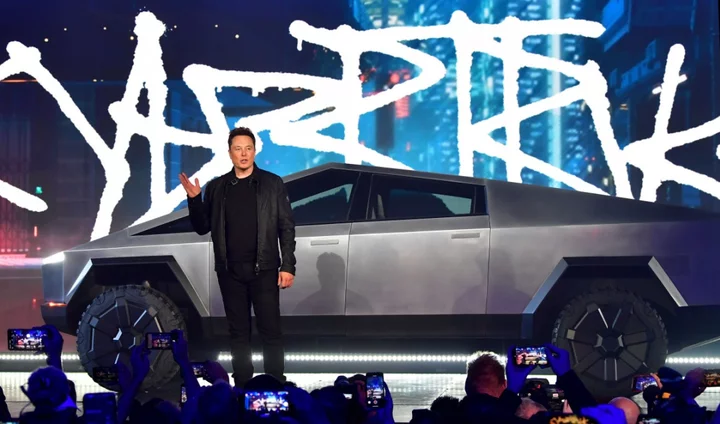
When and where to watch Tesla’s highly anticipated Cybertruck delivery event
Tesla’s first deliveries to customers of its highly-anticipated Cybertruck will take place at the company’s Austin, Texas headquarters later on Thursday. The event is expected to see the first 10 customers taking their Cybertruck deliveries, and the Elon Musk-owned company will also announce more details about the electric pickup truck. The event will be livestreamed on the electric carmaker’s website on Thursday. “Cybertruck deliveries start on Thursday,” Tesla chief Elon Musk said in a post on X the day before. The company first unveiled the vehicle, which it dubbed “an armoured personal carrier from the future”, at a much-publicised but chaotic event in 2019 that offered people the chance to reserve a Cybertruck with a $100 deposit. While Tesla received over 200,000 reservations for the vehicle within the first three days, production for the vehicle was delayed for years. The carmaker had initially promised the vehicle would come towards the end of 2021 along with full production for 2022, but this schedule was pushed back by another year due to supply chain issues. The company later said deliveries for the long-delayed vehicle would commence in the third quarter of 2023. In August, it said it had received 1.9 million $100 reservations to date. Speaking to podcaster Joe Rogan last month, Mr Musk said the Cybertruck will be bulletproof. He said the pickup truck will have bulletproof steel panels and an option for people to purchase bulletproof glass. Mr Musk also said more features of the vehicle will be unveiled during Thursday’s event. The upcoming demonstration of the Cybertruck will have the vehicle being shot at with a Tommy gun, a 45mm shotgun and a 9mm gun, according to the Tesla titan. The bulletproof nature of the truck has been the subject of intense hype. During the first demonstration of the Cybertruck’s toughness in 2019, the vehicle’s window immediately smashed after Mr Musk invited an audience member to throw a small metal ball at it. “Well, maybe that was a little too hard,” the Tesla chief had said. “It didn’t go through, so that’s a plus... room for improvement.” Mr Musk claimed prior testing of the vehicle may have compromised the window. “Sledgehammer impact on door cracked base of glass, which is why steel ball didn’t bounce off. Should have done steel ball on window, *then* sledgehammer the door,” he said. The multibillionaire also played down hopes that the Cybertruck will revive profits for the carmaker in the near future, announcing in an earnings call last month that it could take at least 18 months for the pickup truck to become profitable for Tesla. “There will be enormous challenges in reaching volume production with Cybertruck and making the Cybertruck cash flow positive,” he told investors and analysts. Read More Microsoft gets seat on OpenAI board with Sam Altman back as chief executive Nasa has received a signal from 10 million miles away Apple names its App Store apps of the year Microsoft gets seat on OpenAI board with Sam Altman back as chief executive Nasa has received a signal from 10 million miles away Apple names its App Store apps of the year
2023-11-30 14:45
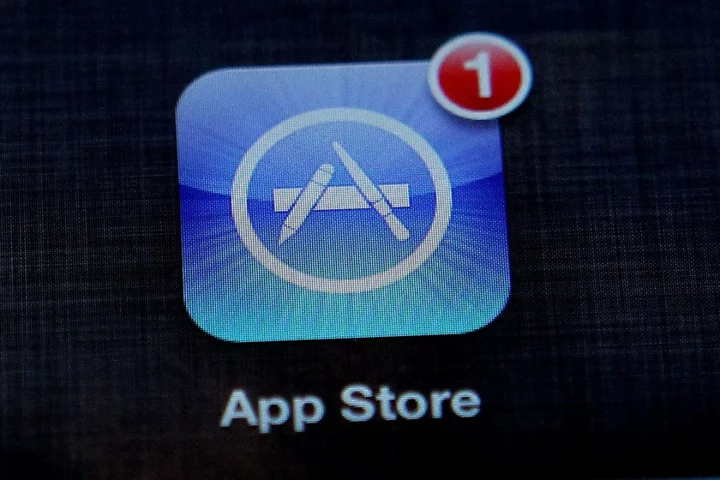
Apple names its App Store apps of the year
Outdoor exploration app AllTrails has been named the iPhone app of the year in Apple’s annual App Store awards. Make-up sketchpad app Pret-a-Makeup was named the iPad app of the year, with image editor Photomator awarded the Mac app of the year, indie film streaming app Mubi picked up the Apple TV app award, and fitness app SmartGym was named the top Apple Watch App. Each of the 14 winners named in the awards was chosen by the App Store’s editorial team and alongside the best apps and games, five cultural impact winners were also highlighted. These included Too Good To Go, a food waste minimising app which alerts users when shops and restaurants have surplus unsold food available at lower prices. Accessibility app Proloquo was also named among the cultural impact winners – the app offers communication tools for non-verbal people. In gaming, Honkai: Star Rail was named iPhone game of the year, with Lost in Play chosen as the best iPad game, Lies of P was named Mac game of the year and Hello Kitty Island Adventure was the Apple Arcade game of the year. “It’s inspiring to see the ways developers continue to build incredible apps and games that are redefining the world around us,” Apple chief executive Tim Cook said. “This year’s winners represent the limitless potential of developers to bring their visions to life, creating apps and games with remarkable ingenuity, exceptional quality, and purpose-driven missions.” Read More Young people the biggest users of generative AI, Ofcom study shows Software firm Cloudsmith announces £8.8m investment UK and South Korea issue warning over North Korea-linked cyber attacks
2023-11-30 12:20

Microsoft to take non-voting, observer position on OpenAI's board
Microsoft will take a non-voting, observer position on OpenAI's board, OpenAI said on Wednesday, adding that Sam Altman
2023-11-30 09:22
